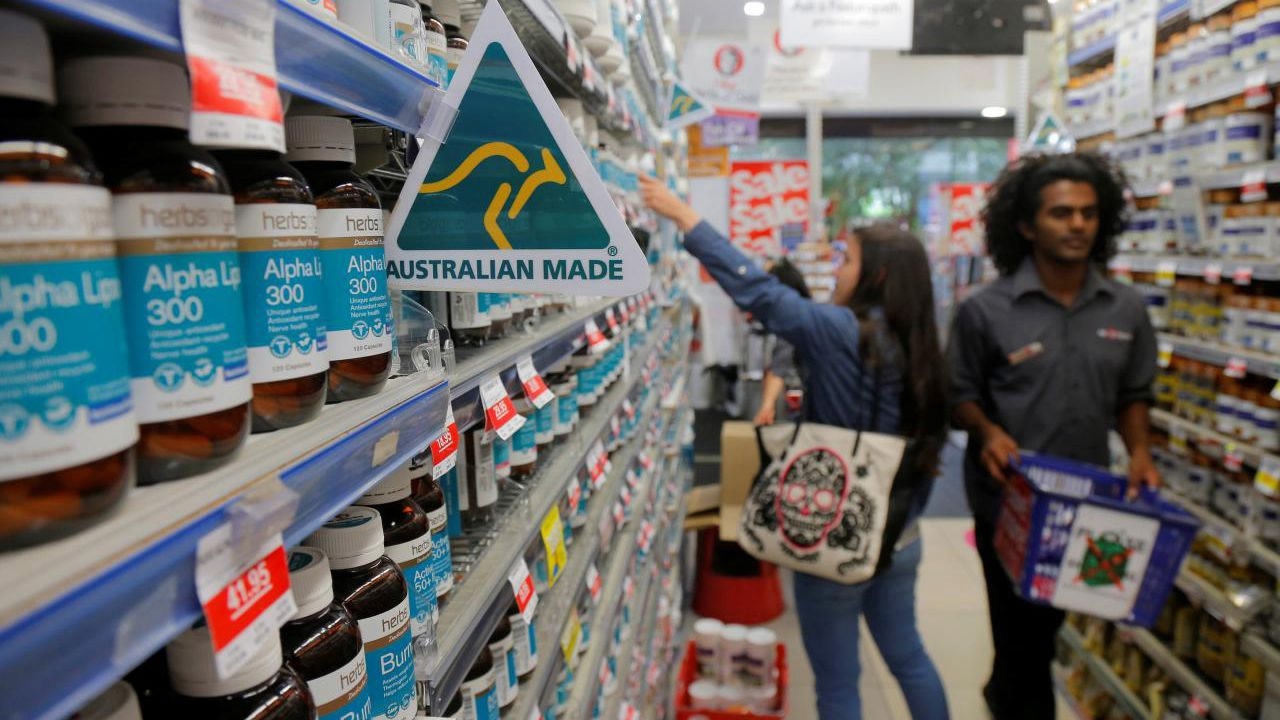
Business
15:45, 05-Oct-2017
'Daigou' business shares soar, as investors see path to cracking Chinese market
CGTN's April Ma

Chinese hunger for infant formula, vitamins, supplements and skin products from the land down under is showing little sign of abating and the "daigou" business is thriving as it satiates the Chinese appetite.
Shares of AuMake International – a company that focuses on importing Australian products to China through individual "daigou’" or purchasing agents – shot up to more than three times their offer price of 0.08 Australian dollars per share during its trading debut on Thursday.
A "daigou" is someone residing abroad, typically a student or overseas Chinese, who purchases products and ships them to China. Most items are brands that are either heavily marked up in China or are still unavailable through authorized channels, as they have yet to locate an importer.
The clientele of these "grey" channels of commerce are found either through online shopping platforms such as Taobao, Alibaba’s Ebay-like site or through friends, connections and word of mouth on social media.
Despite shifting regulatory winds in the near future, investors have instilled faith in the outlook of the cross-border retail industry which is helping smaller overseas brands leap into the world’s largest retail market at diminished cost and paperwork.
Many smaller brands have distributed their products into the hands of Chinese consumers thanks to these individual purchasing agents, often seen emptying entire shelves of popular food items, cosmetics and daily commodities.
"Most ‘daigous’ start out solo, but they gradually grow to develop an influence, and are almost seen as KOLs (Key Opinion Leaders) to their customers,” says Melbourne and Shanghai based Zia Word, co-founder of a personalized travel services app and familiar with building brands across borders.
“When a brand is promoted by a certain daigou with a good network, it can create a spike for them, raising their profile and promoting sales,” she says.
Some "daigous" in the case of AuMake, grow from individuals buying infant formula to small teams and eventually a franchise with packaging and shipping, large enough to negotiate partnerships with the brands they buy from .
There are few reliable figures on the total value of goods that reach Chinese consumers through these personal shoppers. But a report from Credit Suisse last year indicated in a research note that for leading Australian health supplements maker Blackmores, 70 percent of its sales volume travels via the daigou channel using personal post, often couriers that offer services at about six Australian dollars per kilogram.
For the Chinese consumer, sometimes using a "daigou" is the only option to attain a product. Less than 200 brands are sold in flagship stores on China’s biggest e-marketplaces, while 91.2 percent of the 851,700 Australian products and services listed on Taobao were provided by unauthorized buying agents.
But as regulatory uncertainties loom for the "daigou" business, with a new set of cross-border regulations coming into effect by the end of next year. This will be a ramp up of control over goods bought through e-commerce platforms, which have been circumventing standard levels of taxes on what is essentially the import of consumer items.
Though Credit Suisse believes concern about new regulation has been overdone, and will have a small impact on personal buyers, how loose of a rein authorities will hold on these individual shoppers’ remains to be seen.
An increase in goods travelling through the postal channel could garner the attention of China's regulators as the nation tries to narrow a backdoor avenue that allows firms to circumvent taxes and regulatory issues.

SITEMAP
Copyright © 2018 CGTN. Beijing ICP prepared NO.16065310-3
Copyright © 2018 CGTN. Beijing ICP prepared NO.16065310-3